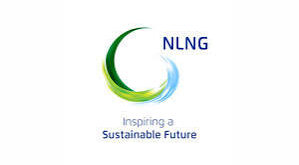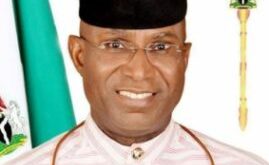By Kinika Godwin
Recently, the media in Rivers State was inundated with condemnation from indigenes and residents over Governor Nyesom Wike’s donation of N500 million to the government of Sokoto State.
The governor had explained that the largess was to help the government of Sokoto State to rebuild a market that was recently gutted by fire, and to help the traders return to their businesses.
The governor’s goodwill is already drawing negative reactions from civil society organisations in Rivers State, members of the opposition All Progressives Congress party (APC), and other concerned stakeholders.
They have strongly condemned the act, describing it as abuse of office and a mark of the governors insensitivity to the plight of Rivers people, even as others think that the gesture is politically motivated.
Prominent among the reasons for the condemnation of Governor Wike’s generosity is the fact that pensioners in the state are yet to receive their gratuity since 2015, while the thirty thousand Naira minimum wage which the state government boasted that it would pay, whatever the Federal Government approved, is yet to be implemented.
Other reasons include non-promotion of civil servants and non-payment of several years of arrears owed them, poor state of the state secretariat, public schools and health institutions, high unemployment rate, as well as complaints of poor infrastructure in many rural communities in the state.
Not long ago, the National Bureau of Statistics in the second quarter of 2020 reported that Rivers State had a total of 1.7 million unemployed persons, making it the second state with the highest rate of unemployment in the country. While another report published by Statista on January 7, 2021, showed that Rivers State occupies the third position with a 43.7 per cent unemployment index, while Sokoto occupies the 35ft position, representing 13.9 per cent unemployment rate in Nigeria.
More annoying is how much that N500 million gift would have benefited Rivers people. Our analysis showed that with these three different sharing formulas, 1,000 persons from the state could have received N500, 000 each, or 500 persons could have received N1 million each, while 100 persons, four from each of the 23 local councils, could have got N5 million each to venture into profitable businesses.
You may recall that this government had promised to train and empower over 20,000 Rivers youths and rural farmers with necessary loan facilities to enable them participate actively in the emerging opportunities in commercial agriculture.
The position of the state government was conveyed by the former secretary to the state government, Kenneth Kobani, during the 2017 World Food Day event in Port Harcourt. At that event, the state government had hinted that its policy on agriculture was aimed at making the state an agriculturally viable economy that would lead to exponential increase in food production and employment generation.
The state government equally admitted that agriculture alone could employ more people than any other business, while noting that the potentials in it are infinite.
Reaffirming this, the governor in his inaugural address to Rivers people on May 29, 2019, insisted that apart from oil and gas, Rivers State also has a vast agricultural potential which has remained largely untapped for decades.
Asserting that it was time for Rivers youth to embrace the agricultural revolution, he also assured that the state government was willing to assist through the provision of necessary loan facilities.
Sadly, nothing appears to be happening in this regard even after the state House of Assembly had authorised the governor to borrow the sum of five billion Naira to facilitate the state policy blueprint on agriculture through disbursement of loans to farmers.
Included in the agriculture policy blueprint was the revival of the School-to-Land programme, establishment of demonstration farms across the state, and support to other key agricultural sectors.
For a state that was recently listed by the National Bureau of Statistics among four states that suffered shortage of supply of staple food products during the COVID-19 lockdown, one would have thought that the government would have activated its laudable agricultural policies and programmes to rewrite the narrative.
Sadly, the governor’s action is a confirmation that many Nigerian public office holders have become famous for managing the collective wealth of the people as if it were their personal investment just because they have unchecked access to it.
Today, Lagos State has the largest gathering of tech startups which are being supported by the state government, individuals and corporate organisations. In fact, Governor Wike’s N500 million generosity could have built a digital incubation hub and co-working centre where Rivers indigenes who cannot afford rent for office spaces could leverage on tech facilities provided therein to create decent employment for themselves.
 PH Mundial – Port Harcourt Online Newspaper News Across The Region
PH Mundial – Port Harcourt Online Newspaper News Across The Region




